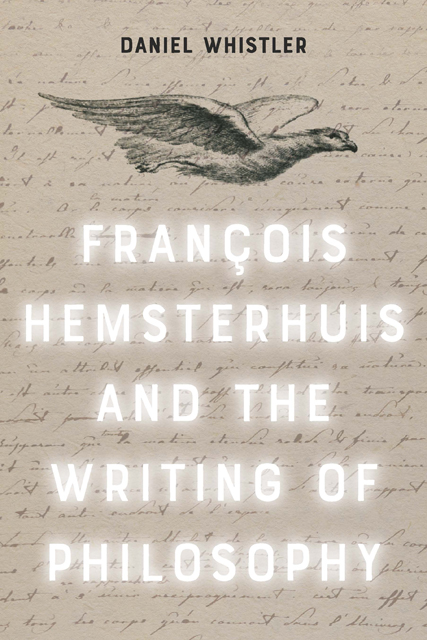Chapter One - Socrates and Newton
Published online by Cambridge University Press: 03 June 2023
Summary
In order to have a transcendental viewpoint on antiquity, perhaps one must be pre-eminently modern. Winckelmann sensed the Greeks like a Greek. Hemsterhuis, on the contrary, … cast his soulful gaze simultaneously onto the old and new worlds.
Friedrich Schlegel (1958–2002: 2.211)§3 ‘Born Greek’
Hemsterhuis’ and Gallitzin’s friendship was consecrated in 1775 in shared commitment to the Socratic ideal. Both could claim with equal legitimacy and ‘in semi-religious ecstasy’ (Brachin 1952: 30) that Socrates was ‘my first love on this earth’ (Gallitzin, quoted in Brachin 1952: 242). And their friendship blossomed during the late 1770s through a close, collaborative reading of Plato’s Symposium, ‘the most beautiful piece that ever came out of man’s head’ (B 2.52, 143). One of the many offspring of this collaboration was, moreover, a French translation of the Symposium completed by Hemsterhuis. This translation work set in motion the following train of thought:
I have been working to finish an imperfect translation of the Symposium. … I have always considered this piece not only as the most perfect description of the beauty of Greek souls, but as the most beautiful production of the human spirit. When reading it, I have always felt an analogy, such a perfect accord, such prodigious intimacy with my soul that I have become quite vain. And if I believed in metempsychosis, I would believe that, when Plato is the interpreter of his hero and master, a bit of his soul composes the essence of mine. I have said somewhere on arts and desires that a long contemplation of the most beautiful thing gives rise to disgust. … I know only two things in the entire universe that always contradict me. It is you and Plato the interpreter. (B 1.144, 180)
For many readers of Hemsterhuis – especially German readers from the late eighteenth century – the defining feature of his philosophy was its philhellenism: in Hemsterhuis’ own words, ‘I feel the Greeks marvellously’ (B 4.11, 38). Not only does he surpass most of his contemporaries in his knowledge of the primary Greek texts, but he is always happy to show off this erudition.
- Type
- Chapter
- Information
- Francois Hemsterhuis and the Writing of Philosophy , pp. 31 - 58Publisher: Edinburgh University PressPrint publication year: 2022



